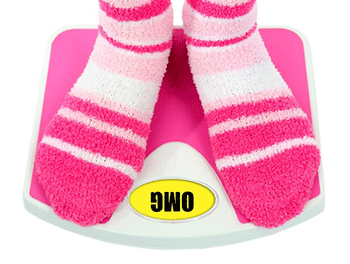 A challenging morning meeting or an interaction with an upset client at work may affect whether we go for that cheese cake desert at lunch. In a recent study at the University of Zurich in Switzerland, researchers placed human volunteers in a controlled “food choice” situation to explore how stress can alter the brain and thus impair self-control when we’re confronted with a choice.
A challenging morning meeting or an interaction with an upset client at work may affect whether we go for that cheese cake desert at lunch. In a recent study at the University of Zurich in Switzerland, researchers placed human volunteers in a controlled “food choice” situation to explore how stress can alter the brain and thus impair self-control when we’re confronted with a choice.In simple terms, this study showed that stressful situations increases the value of immediate reward in our brain while simultaneously weakening that part of our brain that promotes behaviors that are consistent with long-term goals thereby making us more inclined to choose instant, higher pleasure, gratification over longer term, goal oriented rewards.
This scientific confirmation of what most stress eaters already understand and experience may at least be somewhat comforting as they realize their brain is wired that way naturally so it’s not just a matter of not having enough will power. It also explains why we often focus on stress reduction with many of our hypnotherapy clients who are seeking to reach their desired weight goals but hampered by stress.
In reporting her findings, lead author Silvia Maier, of the University of Zurich’s Laboratory for Social and Neural Systems Research wrote, “Our findings provide an important step towards understanding the interactions between stress and self-control in the human brain, with the effects of stress operating through multiple neural pathways.” She goes on to say, “Self-control abilities are sensitive to perturbations at several points within this network, and optimal self-control requires a precise balance of input from multiple brain regions rather than a simple on/off switch.” She emphasized that much work still remains, however, to fully understand the mechanisms involved.
All of the participants chosen for the study were already making an effort to maintain a healthy lifestyle so the researchers presented them with a choice between eating a very tasty but unhealthy item and one that is healthy but less tasty in controlled situations.
In the study, 29 participants underwent a treatment known to induce moderate stress in the laboratory, namely immersing a hand in an ice water bath for 3 minutes, before being asked to choose between the two food options. An additional 22 participants did not undergo the stress inducing treatment before choosing between the food options.
The scientists found that when individuals chose between different food options after having experienced the stressful ice bath treatment, they placed more importance on “food taste attributes” and were more likely to choose an unhealthy food compared with people who were not stressed.
The effects of stress were also visible in the brain. Stressed participants’ brains exhibited altered patterns of connectivity between specific regions of the brain effectively reducing the individuals’ ability to exercise self-control over food choices. Of note was the discovery that only some of these changes were associated with cortisol, a hormone commonly linked to stress.
The investigators say that their study indicates that even moderate levels of stress can impair a person’s self-control. “This is important because moderate stressors are more common than extreme events and will thus influence self-control choices more frequently and for a larger portion of the population,” reports senior author Todd Hare. He went on to opine that, “One interesting avenue for future research will be to determine whether some of the factors shown to protect against structural brain changes following severe stress–such as exercise and social support–can also buffer the effects of moderate stress on decision making.”
There was also a significant amount of variation in the degree to which stress affected the various individuals in the study, so it will also be important to investigate why some people are more resilient than others.
If you’re a “stress eater,” stress is one of your eating triggers, you might want to being to take steps to reducing stress in your life. Since stress is an unconscious response to both outside situations as well as internal stress creating thought patterns, an effective way would be to reduce stress with hypnosis and NLP. This is yet another reason why many people choose hypnosis for weight loss and why hypnosis and NLP are so effective at helping people completely change their unconscious nutritional strategies and can reach and maintain their ideal weight naturally and comfortably.
Do you want to reduce stress in your life while attaining your ideal weight? Get started today by clicking here to schedule a session.
